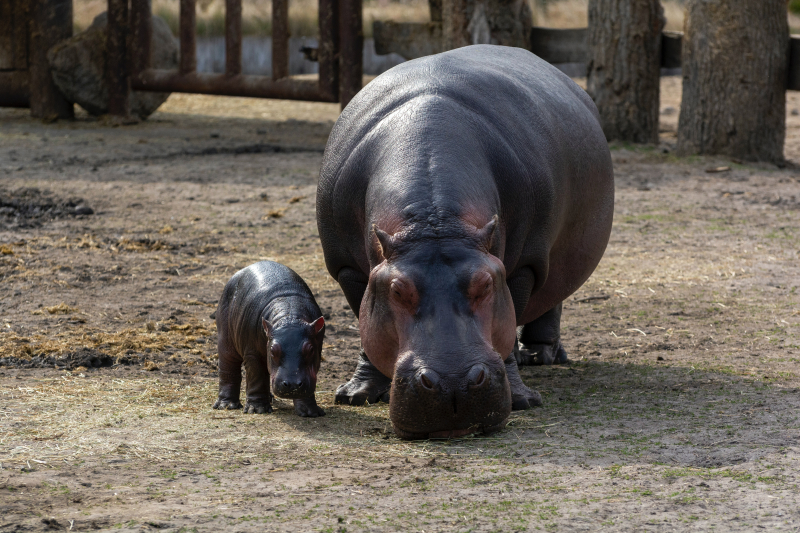Hippopotamus
The Hippopotamus, scientifically known as Hippopotamus amphibius, is a remarkable and distinctive aquatic mammal that belongs to the order Artiodactyla. Often referred to as the "river horse," hippos are among the common animals that start with the letter "H." Despite their somewhat misleading nickname, hippos share a closer evolutionary relationship with pigs than horses.
These hefty creatures are primarily found in sub-Saharan Africa, inhabiting rivers, lakes, and swamps. With their barrel-shaped bodies, short legs, and massive heads, hippos are well-adapted to an amphibious lifestyle. Their skin, largely hairless, is sensitive to the sun, and to protect themselves, hippos secrete a reddish-brown substance that acts as a natural sunscreen.
The Hippopotamus is renowned for its semi-aquatic nature, spending a considerable amount of time submerged in water to regulate body temperature and avoid sunburn. Despite their formidable appearance, hippos are surprisingly agile in the water, capable of covering large distances and even walking on the riverbed.
One of the most distinctive features of hippos is their enormous mouths, equipped with large canine and incisor teeth. Contrary to their herbivorous diet, these impressive teeth are essential for self-defense, and hippos are known for their aggressive behavior, especially when they feel threatened. Their powerful jaws can crush bones and provide a formidable defense against potential predators, including crocodiles.
Hippos are primarily herbivores, consuming a diet composed mainly of grass. Their grazing habits play a crucial role in shaping the landscape around water bodies, influencing the growth of vegetation, and maintaining ecological balance. Despite their seemingly docile appearance, hippos are responsible for more human fatalities in Africa than many other large animals, as they can be unpredictable and territorial.
















